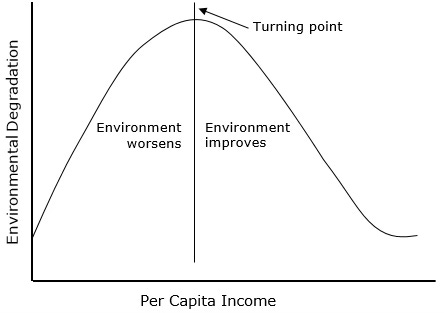1) It’s so nice to see so much of our own military-industrial complex dysfunction in China’s military-industrial complex
WAPO: What China’s new defense minister tells us about Xi’s military purge
Over the years now, my exposure, first-hand, to military thinking, strategizing, force-planning, etc. within the Chinese military … has consistently left me underwhelmed. Not that special, not nearly as sophisticated, and — frankly, super-full of FWA (fraud, waste, abuse). I mean, serious kleptocratic behavior throughout.
Xi just purges a load of his top military people — always an impressive move, unless you’re mostly doing it to clear out the FWA among your senior people.
A fish rots from the head down, as the Russians say.
2) The Russians are coming! The Russians are coming!
WAPO: Russia is working to subvert French support for Ukraine, documents show
Russians working the French pretty hard to divide Europe and NATO on its military support to Ukraine.
Right now, no such big push is required with the GOP in Congress, as these fellow travelers are totally game for that journey. [I want a I’m with dictator! tee-shirt with the arrow pointing right.]
Still, we gotta anticipate lots of meddling out of Moscow in our next election.
And I don’t simply refer to the further conditioning of Putin’s base within the GOP.
3) When war crimes are part of your strategy
NYT: ‘Screams Without Words’: How Hamas Weaponized Sexual Violence on Oct. 7
Never to be forgotten as this fight continues to unfold.
One side tries hard to avoid doing wrong, the other side can’t wait to brag publicly about its atrocities.
It’s not hard to pick a side.
4) You only get what you give, China
Times of India: Chinese military irked by Indian Navy drill with Philippines
China goes out of its way to hassle the Philippines with its bogus overreach on sea claims, so guess who’s happy to show up (besides the US, of course) and stick it to the Chinese a bit?
Why, the Indian navy, of course.
China right now is the best recruiter out there for anybody interested in joining naval cooperation schemes in East Asia, just like Putin is killing it (pun intended) on NATO recruitment.
5) It’s all about stealing the secret formula!
NYT: Chinese Spy Agency Rising to Challenge the C.I.A.
Great story on how China is building up its counterpart to our CIA.
Most interesting: the fight here is all about stealing technologies for economic exploitation — or preventing that industrial espionage. It’s not the ideological fight that matters here, or really military intelligence (we both have other agencies for that).
Now, the top-of-the-card intelligence fight is all about the Benjamins.
Good luck to both, I say, on hoarding technologies in our networked world.
6) God doesn’t draw straight lines (or such uniform curves)
BBC: How humans have changed the Earth’s surface in 2023
Humans have reformatted 3/4ths of all non-Antarctic land.
We’ve altered the land, the air, and the oceans.
It’s not really up for debate.
You change all the ingredients, you get a different dish.
7) A big business deserves serious advertising
NYT: Live from the Jungle: Migrants Become Influencers on Social Media
There is demand and it must be met:
Manuel Monterrosa set out for the United States last year with his cellphone and a plan: He’d record his journey through the dangerous jungle known as the Darién Gap and post it on YouTube, warning other migrants of the perils they’d face.
In his six-part series, edited entirely on his phone along the way, he heads north with a backpack, leading viewers on a video-selfie play-by-play of his passage across rivers, muddy forests and a mountain known as the Hill of Death.
He eventually made it to the United States. But to his surprise, his videos began attracting so many views and earning enough money from YouTube that he decided he no longer needed to live in America at all.
So, Mr. Monterrosa, a 35-year-old from Venezuela, returned to South America and now has a new plan altogether: trekking the Darién route again, this time in search of content and clicks, having learned how to make a living as a perpetual migrant.
“Migration sells,” Mr. Monterrosa said. “My public is a public that wants a dream.”
Still think a wall is going to do it when the American Dream beckons?
8) To emerge economically is to have the most polluted cities in the world
WAPO: Bad air forces Pakistan to shut schools and markets and seed the clouds
Pakistan identified with India as pretty much the most polluted cities in the world right now in terms of air quality.
Not that long ago, it was China.
Before that was Japan.
In my childhood, it was America.
If the before time, it was “foggy old London” (hint: London doesn’t actually get fog).
There is an observed reality here in terms of economic emergence: the environmental Kuznets curve:
Point being this too will pass.
Also, that development is the answer — not just the cause.
9) The Western Hemisphere is one big mixed race
Bloomberg: Mixed-Race Brazilians Now Form the Largest Share of Population
The key data point on Brazil:
“45.3% identified as mixed-race in 2022, new data shows”
Brazil is now more mixed-race than anything else.
Crazy, right?
Fastest growing segment of the US population in 2020 census?
Mixed-race.
Maybe … not so crazy to see all those inter-racial families in TV commercials.
But also maybe why White Privilege in America suddenly seems so vulnerable and defensive and increasingly aggressive.
What do I see?
We are simply moving toward the norm for our hemisphere, so no hay problema! [or sem problemas]
10) Africa is ours and our alone to ignore!
VOA: Enough Space for Everyone? US, China Target Africa
The gist of this final frontier competition between superpowers:
"In recent years, China has emerged as the leading partner with Africa," said Nigerian space scientist Temidayo Oniosun, who is the founder of Space in Africa, an analytics and consulting company.
Oniosun says there have been a lot of collaborations across sectors including communications, observation, navigation and positioning. China is developing satellites for different partners, ground station infrastructure, and is pushing for countries to adopt its BeiDou satellite navigation system, seen as an alternative to America's GPS.
So where’s the race, my friends?
"Chinese companies have been capitalizing on this for years. It's now that the U.S. is waking up to this," he said during a recent forum on the topic at the U.S. Institute of Peace in Washington or USIP, a think tank founded by Congress.
And so what is America’s great plan now that we’re waking up"?
"U.S. strategy towards Africa in space is actually more about reducing the hegemony of China over Africa than anything else. … I think one of the major reasons they're [the U.S.] paying attention is because China is doing so much," Oniosun told VOA.
Story of US-China competition across the world: they are playing go, laying stone after stone. Every once in a while, America, so busy with its poker-like security showdowns elsewhere — or just too busy planning for war with China over Taiwan, “wakes up” and starts pushing the partner nations in question to please stop doing so much with the Chinese!
And why should Africa slow down?
Because it would make America less worried about falling behind!
11) Got a devil’s haircut in my mind
Newsweek: Gen Z Doesn't Agree $74K is Middle Class
I’ve mentioned this in speeches: there is the US definition of middle class and there is the global definition, which — guess what — is a few cuts lower alright.
My sense for my kids (2 Millennials, 4 Gen Zs): they’re going to live lives far closer to that global middle class in terms of standard of living than I ever did.
Some sense of that perception:
Today, middle class describes a broad economic group making up roughly half of the U.S. population. Typically, it has consisted of those in white-collar jobs, small businesses or skilled trades.
According to the Pew Research Center, the middle class includes Americans making between $38,133 and $114,400 in 2023. But Gen Z isn't so sure about that definition.
Only 41 percent of Gen Z respondents said they viewed those with a salary of $74,580, which is right in the middle of the two outer ranges, as "middle class."
That’s because $74k isn’t going to yield the standard of living it used to, and I’m not just talking inflation, which remains stunningly low (even with our recent post-pandemic brush) in the US relative to truly inflationary economies elsewhere.
After the 2008 Crash, it wasn’t just homeowners who got a haircut. In generational terms, I think the Millennials and Zs are looking at permanently diminished prospects due to the inequities of our economy, the massive debt (public and private) run up by preceding generations, their negative wealth (student debts, etc.), cost of healthcare, gig economy dynamics, and the expected lack of a true wealth transfer from Boomers to their kids (Guess what? That $50T is expected to mostly be eaten up in healthcare costs!).
All that stuff adds up to deflate their expectations by trimming their standard of living down toward the global average — regression to the mean that just plain feels mean. But this is the reality of a world that has plussed up the haves and drastically reduced the have-nots: the competitiveness of the global economy means Americans can’t live like we used to when we ruled globalization.
It also means we’re in desperate need of a progressive era that regrades the economic landscape in America once again. Angry populism is just the opening act here. The main feature is yet to come.
12) Climate dries crops, export curbs installed
Reuters: Global 2024 staple food supplies to be strained by dry weather, export curbs
Food was above-average expensive in 2023 and 2024 not looking any better, “amid adverse El Nino weather, export restrictions and higher biofuel mandates.”
Big producer Brazil is expected to be down on corn, while biggest-importer China is buying wheat and corn like crazy. In general, production not looking good across Asia due to El Niño.
Then a deep sign of stress in the works:
India's next wheat crop is also being threatened by lack of moisture, which could force the world's second-largest wheat consumer to seek imports for the first time in six years as domestic inventories at state warehouses have dropped to their lowest in seven years.
Sounds almost biblical — the seven years part.
Then on and on:
Come April, farmers in Australia, the world's No. 2 wheat exporter, could be planting their crop in dry soils, after months of intense heat curbed yields for this year's crop and ended a three-dream run of record harvests.
This is likely to prompt buyers, including China and Indonesia, to seek larger volumes of wheat from other exporters in North America, Europe and the Black Sea region.
The gist:
Big producers suffering drier conditions, yielding less.
Big consumers suffering even worse, so ramping up imports.
Asia relying that much more on the Western Hemisphere to meet its needs.
Climate change stressing everybody.
One top ag banker quoted:
"We see more upside price risk than down."
Get used to that judgment, and welcome to 2024!







